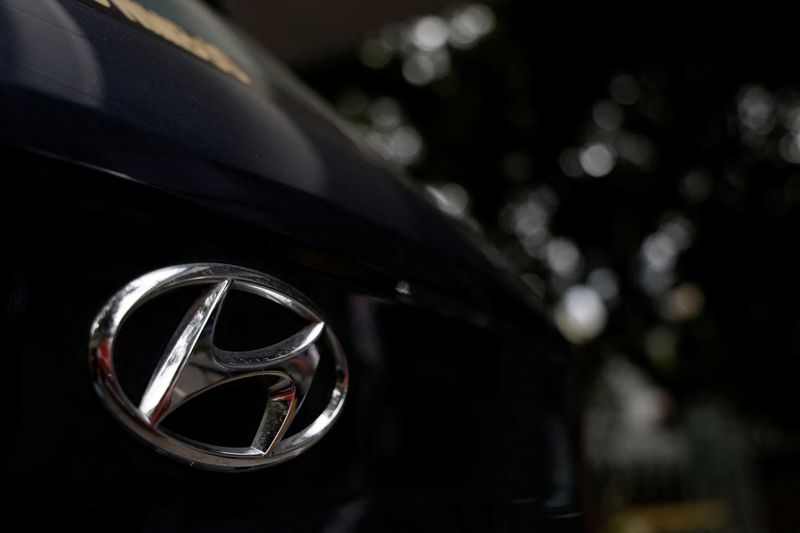By Hyunjoo Jin and Joyce Lee
SEOUL (Reuters) -South Korea's Hyundai Motor (OTC:HYMTF) Group said on Thursday it planned to boost domestic investment by 19% to a record 24.3 trillion won ($16.65 billion) this year to ensure growth as it navigates political turmoil as well as U.S. economic unpredictability.
The group, which includes Hyundai Motor and Kia, ranks third in global vehicle sales behind Toyota Motor (NYSE:TM) and Volkswagen (ETR:VOWG_p).
Its planned investment includes 11.5 trillion won in research and development for next-generation products, electrification, software-defined vehicles, hydrogen fuel-powered products and other technology.
It will also spend 12 trillion won on ordinary investment such as expanding production of electric vehicles and new models, and about 800 billion won on strategic investment such as for autonomous driving, the group said in a statement.
As part of this, the group plans to build a plant at its Ulsan production site for its new "hypercasting" manufacturing technique for EVs.
Hyundai and other automakers are following Tesla (NASDAQ:TSLA)'s "Gigacasting" technology in which major sections of vehicles are made with large single parts, thereby streamlining production and lowering costs.
"Hyundai Motor Group is making the largest investment ever in South Korea this year because it believes that continuous and stable investments are essential to overcome the crisis and secure future growth engines in the face of growing uncertainties," the group said without detailing the crisis.
Hyundai Motor Group Executive Chair Euisun Chung last week referred to recession and global conflict as external risks.
Shares in Hyundai Motor and Kia were up 2.3% and 3.8% respectively in early trade before paring gains to close down 0.2% and up 2.3%. The broader market closed up 0.03%.
Hyundai and Kia said last week they aimed to grow combined global sales by 2% to 7.39 million vehicles in 2025, after reporting a dip in 2024 and missing targets.
At home, consumer sentiment dropped in December by the most since 2020 during the COVID-19 pandemic, hit by political uncertainty following President Yoon Suk Yeol's declaration of martial law and his impeachment.
In the United States, President-elect Donald Trump has said he would impose universal 10% tariffs on imported goods.
Hyundai Motor started production at a factory in the U.S. state of Georgia last year to make its vehicles eligible for tax credits under the incumbent administration which Trump has said he would scrap.

The automaker in November named Jose Munoz, its U.S. chief and global chief operating officer, as co-CEO and the first foreign national to assume that rank at a major South Korean conglomerate. Company watchers said the appointment was aimed at helping the automaker navigate potential challenges posed by the incoming Trump administration.
($1 = 1,459.6900 won)